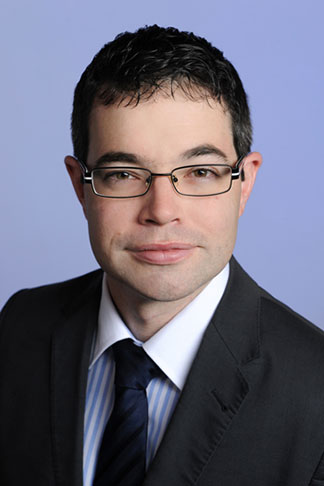Uncovering Difficult-to-Find Information Leads to Challenge Team Success
Interview with IdeaConnection problem solver Chris Harrison By Paul Arnold
Problem solver Chris Harrison achieved success with his very first challenge for IdeaConnection. He was awarded two prizes totaling $5,000 for being part of a team that developed a winning solution for a seeker. Chris has his own biotech consultancy, Harrison Scientific and has spent a lot of his career to date on biochemical aspects of infectious human disease. He has also worked directly in drug development, as part of international collaborations developing novel antibiotics against such pathogens as Legionella. However, this IdeaConnection R&D challenge involved him working in an unfamiliar area, something he relished and talks about in this interview.
 What can you tell us of the challenge that you worked on?
What can you tell us of the challenge that you worked on? Basically, it was to do with technology analysis and recommendation. The solution seeker had a biotech process they were trying to set up and they wanted to figure out what sort of system to set it up in. Essentially, our job was to go out and look at what was out there.
We took a very broad look at the entire market, which is quite large to be honest. I didn't realize that until afterwards, that's for sure. I certainly had no idea about the depth and breadth of this area. And then we said to the solver, based on what we know about your projects and what we know about this area, these are the options that fit what you're looking for – this is what we think your best bet is.
What did your role in the challenge team entail?
An awful lot of different things actually, which was one of the enjoyable parts of it. For example, a lot of background reading and googling, after all it's not my area. I come from more of a drug discovery background, so this was different, but also fun, to read up a lot about different things.
We also had to try and get a lot of information about things that companies don't really want you to know. These things are trade secrets as to how well something works and the yield you can get from a particular strain. So it took a lot of hunting around in the back end of different documents that have been scattered through the web, to figure out what these actual values are.
So you didn't have to don a mask and break into a company's building? Joking aside, this information is publically available, just difficult to get to?
Yes, exactly. It is always publically available information. I didn't have to bribe anyone or do anything Mission Impossible style. The information though is often hard to find and buried under a lot of other things, so it takes a while to look through.
So once you found the information, what was the next step with the rest of the team?
There were a variety of different technologies and we split up the research between the team members. We gathered as much information as was humanly possible and brought it all together at the end. We examined and discussed the material and then put forward the recommendation.
As you mentioned earlier, this wasn't your area of expertise – did you feel that this was a drawback?
No, not at all. I like working in different areas. I spend quite a bit of my time doing freelance stuff like this and so it is always interesting to learn a new area and develop my knowledge.
How does being part of a challenge team help you in your own career?
It helps in the sense of being able to estimate whether a technology is good or not and gives me more of a grounding in the process used to determine this. And this is definitely an area I am interested in and would like to head towards. So from that point of view I think it exposes me to skills that I wouldn't otherwise have much experience with.
Your team received a considerable cash award for its success, what was the moment like when you found out you had won?
It was a month or two after we submitted the solution and I had forgotten about it. And then an email popped up and said that I was going to be getting some extra money which was a very nice surprise.
